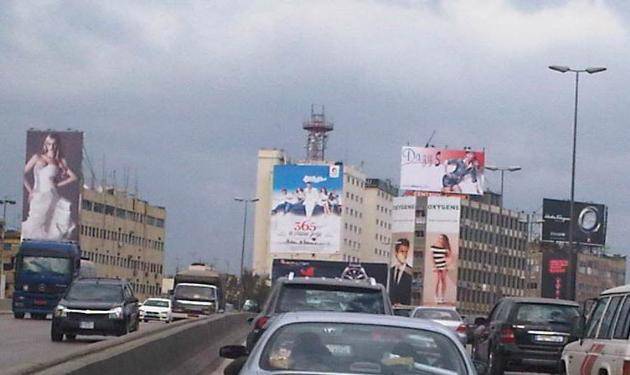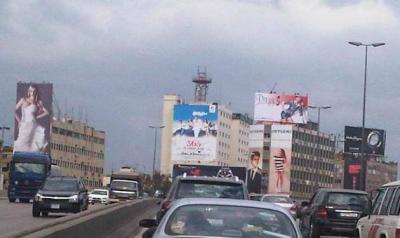"Total collapse" is how the reality of the advertising sector in Lebanon is described, as its revenues have plummeted by 95% over the last three years. The sector, which generated approximately $193 million in 2018, began to witness a decline with the start of the October 17th revolution, with revenues falling to $120 million in 2019.
The decline peaked in 2020, as the economic crisis interacted with the difficulties faced by banks, the rise in exchange rates, and the changing priorities of the Lebanese people. The COVID-19 pandemic dealt a fatal blow and led to the total collapse of the sector.
George Jabbour, president of the Syndicate of Advertising Agencies, asserts that it is impossible to estimate advertising revenues for 2020 due to the varied exchange rates, but the syndicate estimates them at $10 million. In his talk with MTV, Jabbour describes the decline in sector revenues to 5% as a "complete collapse," which continued in 2021 and 2022.
However, the May 2022 elections created an opportunity for media outlets to somewhat bolster their budgets. Jabbour estimates electoral spending and investment for media outlets at around $20 million, and for advertising billboards at about $7 to $8 million.
The state of the advertising sector is not better than that of other sectors; rather, it is worse. In terms of crisis management logic, companies first turn to cutting expenses on advertising campaigns. This is precisely what has occurred due to the crises in Lebanon.
Jabbour enumerates the three types of clients investing in advertising in the Lebanese market, saying: "The first client was banks, which invested large sums before the crisis, and today this investment has stopped. The second client is global brands that face difficulties investing in Lebanon due to rising prices and changing priorities of the Lebanese; the Lebanese market has largely shifted from brand loyalty to seeking the lowest-priced product. The third client comprises local companies and factories whose locally manufactured products are in high demand, and they export part of their production outside Lebanon to benefit from hard currency." He adds that local clients no longer have an urgent need for advertising since their market is "doing well."
On July 26, 2020, the Syndicate of Advertising Agencies launched the "I Advertise" campaign to encourage advertisers, creating incentives and advertising packages at acceptable prices; however, this campaign was devastated by the August 4 explosion.
"What is the solution today?" we ask Jabbour, and he responds: "The day before yesterday, the syndicate called for a meeting to discuss solutions, and it is difficult to find a solution." He adds, "Companies are trying to create new markets, particularly in the Gulf, by developing their creative departments and honing their employees' skills to meet the demands of other markets, and the COVID-19 pandemic has facilitated remote work."
He continues: "What applies to the creative departments does not apply to media outlets, which are already struggling. As long as the crisis continues, the Lebanese market cannot produce as it did in the years preceding the crisis, and the solution lies in recovery, revitalizing the economic wheel, and raising the standard of living for consumers so that the advertising sector can return to its former state." Despite all the difficulties and challenges, Lebanese people try to create opportunities at home and abroad to avoid the day when the final announcement is made, declaring the end of Lebanon and the Lebanese.




